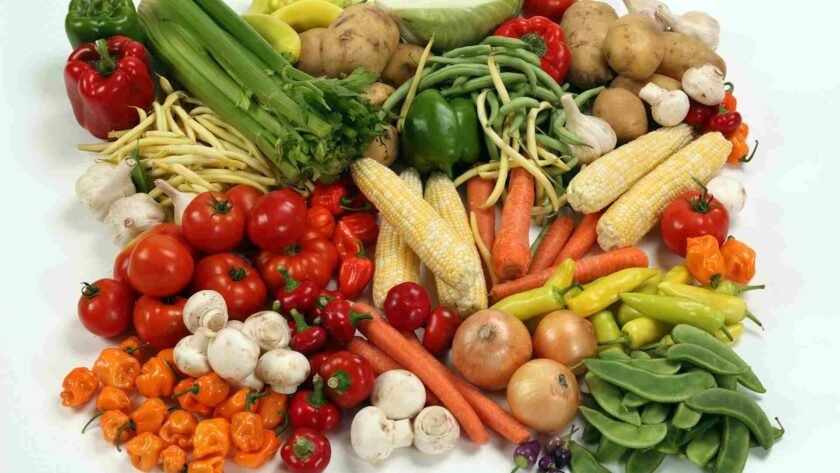What we eat doesn’t just affect our physical health—it also plays a huge role in how we feel emotionally. More people are realizing that mental wellness is closely tied to good nutrition. If you often feel anxious, low in energy, or overwhelmed, your meals might be part of the reason.
In this article, we’ll explore how food affects your brain and share easy meal ideas that support a healthy mind.
The Connection Between Food and Mood
Our brain needs nutrients to function. It uses fuel 24/7—even while we sleep. If we don’t give it the right fuel, it can lead to mood swings, poor focus, anxiety, or even depression.
A growing number of studies support this link. According to the Harvard Health Publishing, diets rich in vegetables, whole grains, fish, and healthy fats are linked to a reduced risk of depression and anxiety [1].
Some of the key nutrients that support mental health include:
- Omega-3 fatty acids (found in fatty fish like salmon and sardines)
- B vitamins (especially B6, B12, and folate)
- Magnesium (found in leafy greens, nuts, and seeds)
- Amino acids (from protein sources)
- Antioxidants (from fruits and vegetables)
Breakfast: Start Your Day with Brain Fuel
Skipping breakfast can make your blood sugar drop and leave you feeling tired or irritable. A balanced breakfast helps stabilize energy and focus.
Meal Idea 1: Oats with Berries and Nuts
- ½ cup rolled oats
- 1 cup almond or cow’s milk
- 1 tablespoon chia seeds
- A handful of blueberries
- A few almonds or walnuts
Why it works: Oats are slow-burning carbs that give lasting energy. Berries are full of antioxidants, and nuts provide healthy fats and magnesium.
Meal Idea 2: Avocado Toast with Egg
- Whole grain bread
- ½ mashed avocado
- A boiled or poached egg
- Sprinkle of pumpkin seeds
Why it works: Avocados support brain function with healthy fats. Eggs provide choline, important for memory.
Lunch: Keep It Light but Nourishing
Your lunch should give you energy without making you sluggish. A balance of protein, fiber, and healthy fats can prevent that mid-afternoon crash.
Meal Idea 3: Grilled Chicken Quinoa Bowl
- Grilled chicken breast
- ½ cup cooked quinoa
- Steamed broccoli and carrots
- Olive oil and lemon dressing
Why it works: Quinoa has all nine essential amino acids. Chicken is rich in B vitamins. Veggies add antioxidants and fiber.
Meal Idea 4: Lentil and Spinach Soup
- ½ cup red lentils
- 1 cup vegetable broth
- Handful of spinach
- Diced onion, garlic, and carrots
Why it works: Lentils are a good source of folate and iron, both crucial for brain health.
Snacks: Curb Cravings the Smart Way
When hunger hits between meals, grab something nourishing instead of sugary treats.
Snack Idea 1: Greek Yogurt with Honey and Walnuts
Why it works: Protein-rich yogurt supports neurotransmitter function. Walnuts are brain-friendly fats.
Snack Idea 2: Dark Chocolate and Almonds
Why it works: Dark chocolate (70% or more) contains flavonoids that boost mood. Just a few squares are enough.
Dinner: Wind Down Without Overeating
Dinner should be comforting and light enough to support sleep and digestion.
Meal Idea 5: Baked Salmon with Sweet Potato
- Baked salmon fillet
- Roasted sweet potato cubes
- Steamed asparagus or green beans
Why it works: Salmon is high in omega-3s, which reduce inflammation and support mood. Sweet potatoes help regulate blood sugar.
Meal Idea 6: Vegetable Stir-Fry with Brown Rice
- Broccoli, bell peppers, mushrooms, and bok choy
- Low-sodium soy sauce or tamari
- Brown rice
Why it works: Packed with fiber and antioxidants. Brown rice provides slow-releasing energy.
Beverages: What You Drink Matters Too
Your mental health can also be influenced by what you sip during the day.
- Drink water: Dehydration can cause fatigue and confusion.
- Limit caffeine: Too much can spike anxiety.
- Try herbal teas: Chamomile, lemon balm, or ashwagandha teas support relaxation.
Tips to Make Healthy Eating Easier
- Plan meals ahead of time to avoid unhealthy choices.
- Keep healthy snacks like fruit, nuts, or yogurt ready to grab.
- Cook in batches and freeze portions for busy days.
- Start small. Even changing one meal a day can improve how you feel.
Final Thoughts
Nutrition isn’t a magic fix for mental health challenges, but it’s a powerful support tool. Small, consistent changes in what you eat can lead to better focus, stable mood, and a calmer mind.
When you feed your brain well, it can better support you emotionally and mentally.
Sources
[1] Harvard Health Publishing. “Food and Mood: How Diet Affects Mental Health.” Harvard.edu.
[2] Mental Health Foundation. “Diet and Mental Health.”
[3] National Alliance on Mental Illness (NAMI). “Eating Well for Mental Health.”





